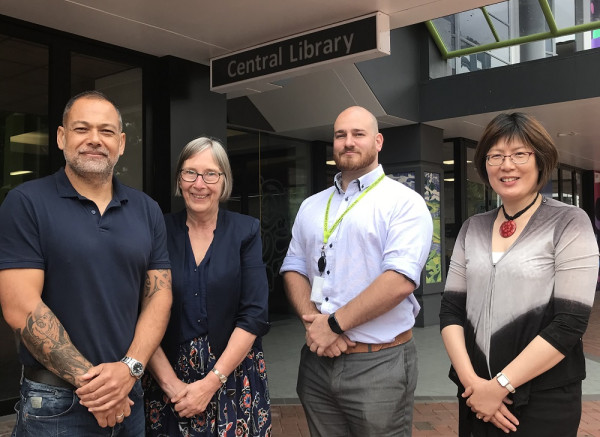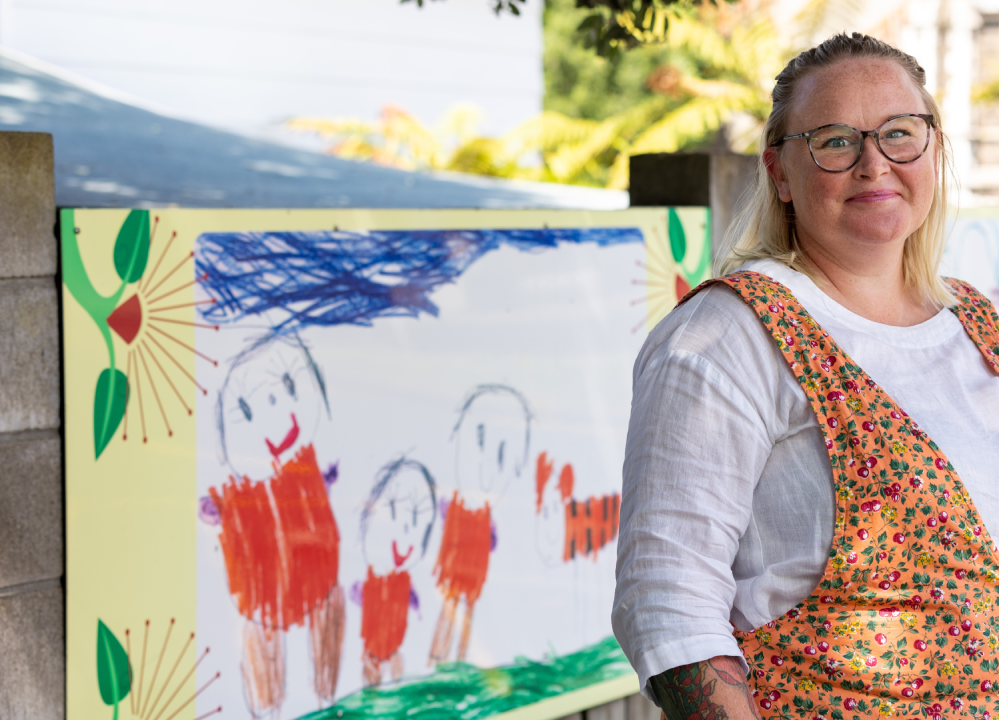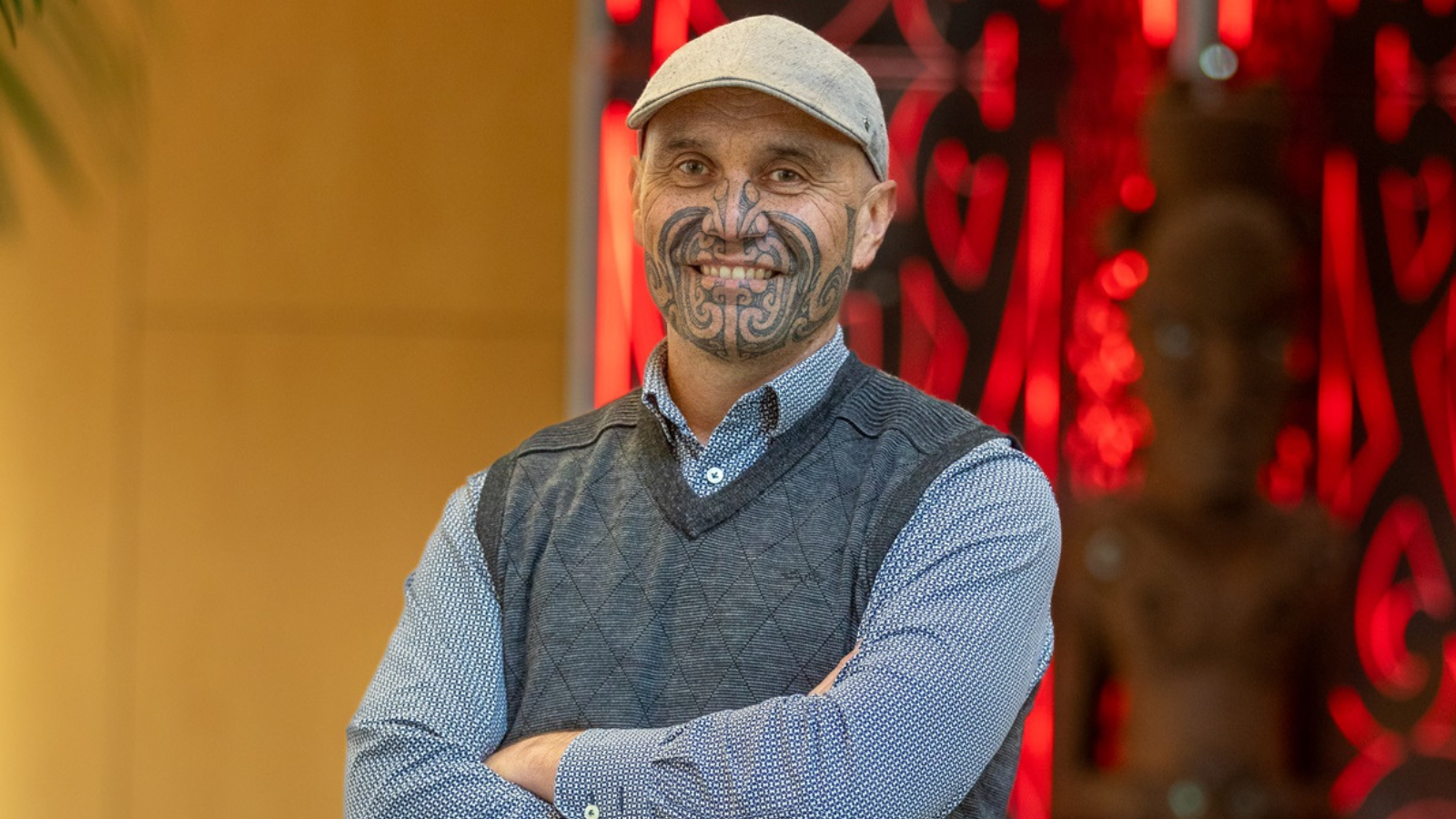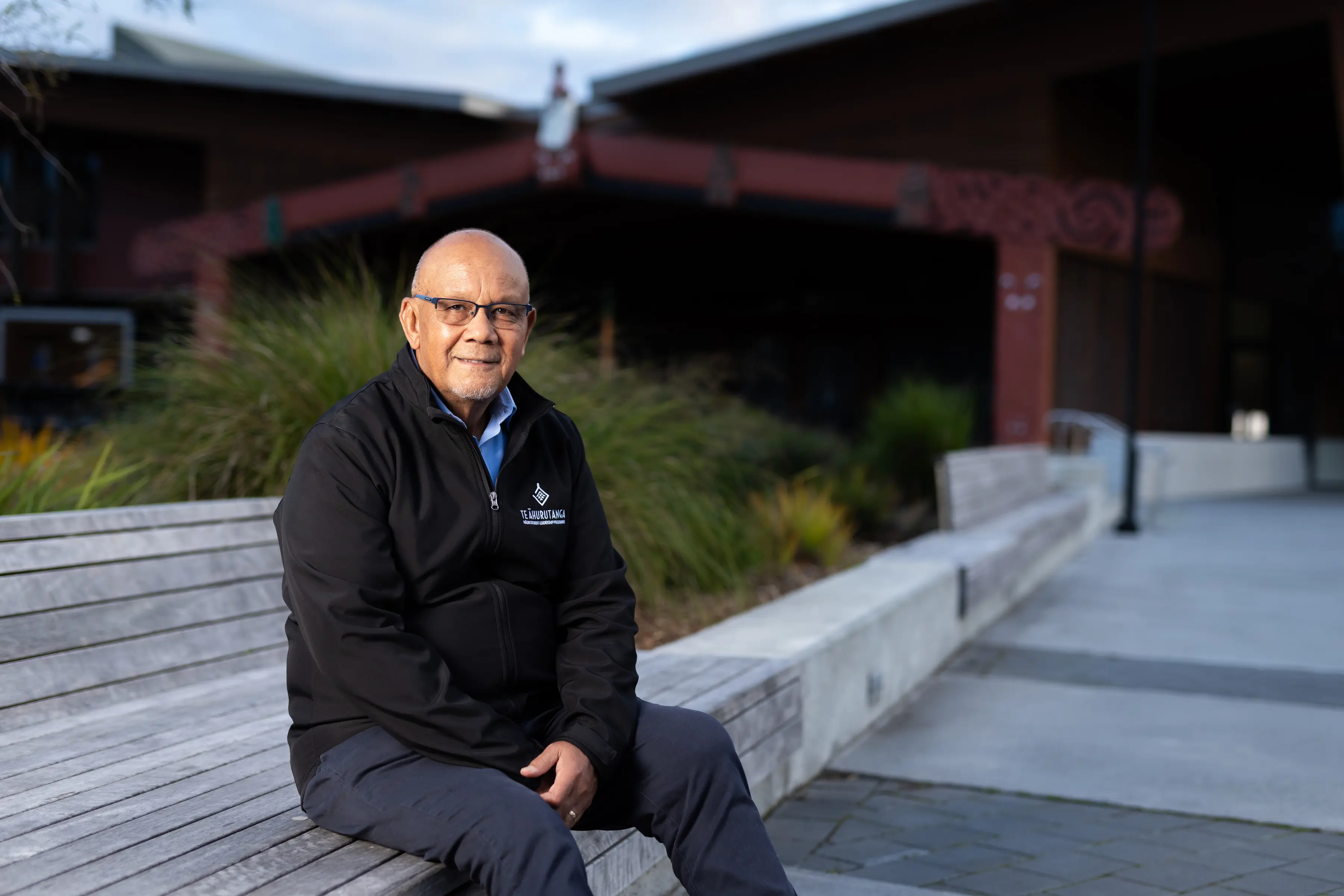
(L-R): Aaron Martin – Hamilton City Libraries, Professor Bronwen Cowie – University of Waikato, Van Kilburn – Hamilton City Libraries, and Dr Elaine Khoo – University of Waikato
Learning to code, programming Lego robots and using 3-D printers are some hands-on activities that could change the way young kids learn, and it’s the focus of a collaborative research project between the University of Waikato and Hamilton City Libraries.
The research project, which is looking at the learning impact of ‘makerspaces’ – dedicated spaces equipped with resources for kids to undertake hands-on projects – was awarded $30,000 in research funding from MBIE’s Unlocking Curious Minds project fund late last year.
Waikato University’s Dr Elaine Khoo, who is the project lead, says makerspaces is a relatively new concept in education, which has shown to positively contribute to children’s STEM (science, technology, engineering, and mathematics) learning.
“Making and tinkering are an important part of learning. There’s evidence that children who participate in after-school makerspace programmes can develop STEM interests and skills through experiential, exploratory and collaborative learning experiences,” says Dr Khoo.
Makerspaces involve the setup of spaces designed specifically for people who want to create things to pursue their own learning goals. It typically involves spaces that are equipped with resources like 3D printers, robotics sets, coding kits, sewing machines and other hands-on tools.
Dr Khoo is currently working with Hamilton City Libraries to design a makerspace curriculum and the upskilling of library staff to enhance their makerspace programme for children aged 8 to 12, evaluate its success and identify areas of improvements.
The Library currently runs a mobile makerspace programme called the LAB, a free weekly programme, rotating around the Library’s six community libraries and three community centres during the school term. The Library is keen to further develop the LAB to enhance children’s engagement with robotics and science ideas, so they develop the skills to solve problems, think creatively, and develop innovative ideas.
“It’s wonderful to see the public library expanding beyond its physical and traditional roles. This project is a fantastic initiative to encourage children to participate in, and construct, their own projects.
“For me, this project is about broadening community participation in STEM, providing kids from diverse communities with access to equitable STEM learning opportunities and encouraging them to develop lifelong learning skills.”
In order to promote children's STEM engagement, the project has three aims. The first is to co-develop a makerspace curriculum with Hamilton City Libraries to support primary-aged children's learning through making within the LAB programme to widen children’s access to, and participation in, STEM through a series of experiential, exploratory and collaborative activities.
The second aim is to looking into offering a series of professional development workshops for library maker educators in terms of upskilling their technical skills, and how they engage with children pedagogically to encourage children’s curiosity in learning about science ideas.
The third aim is to develop a digital resource on the teaching-and-learning of coding, robotics and science that is aligned with a vision of learning through making that can be shared with other regional libraries and librarians.
The project will see three cycles of iterative refinements across the year with three cycles of maker educator workshops to develop and refine resources to enhance children’s learning.
Maker educators will engage children with a variety of interactive science, coding and electronics activities. Educators will work with 15-30 children per session in nine settings across the three cycles. At least 90% of children attending the community centre makerspace programme are Māori from lower income families; typically underrepresented in STEM careers.
The project will also see involvement from Waikato University’s Professor Bronwen Cowie, as the science education expert, and Graz University of Technology’s (Austria) Adjunct Professor Martin Ebner, who is one of the world’s leading researchers in makerspace education, as the robotics expert.
The project is based on an earlier collaboration with the Library.
“I had enrolled my own children in the LAB when it first started, and saw how engaged they were as were the other children in the programme. I then approached the Library to see if we could work together to run a pilot evaluation of the LAB,” says Dr Khoo.
Feedback from parents and community users of the programme indicated they highly valued the programme as it was free, gave children access to and use of equipment and tools their families could otherwise not afford, and helped them develop 21st century skills for future workplaces. This UCM project is an opportunity to collaborate again to run a more in-depth study to strengthen the LAB programme and build on those pilot findings.
“This project is both fascinating and interesting for me because it’s an opportunity to go beyond researching formal schooling contexts to focus on a semi-formal learning initiative in working with our public library that will have a wider community outreach” says Dr Khoo.
“It’s working with librarians to developing teaching and learning skills to engage children in STEM ideas, it’s working in a semi-formal context where there’s no formal assessment, and it’s about encouraging kids to explore, learn and take on a project that they are interested in.”
The Hamilton Central Libraries also opened its new Auaha / Makerspace room in November 2019, which includes a 3D printer, laser cutter, vinyl sticker maker, sewing machine and recording studio, which is open to the public and also has STEM based programmes running.
The project will contribute understandings to maximise the use of the new space, as well as on the overall role of maker educators and makerspaces as contributors to the wider STEM learning ecosystem in New Zealand.



